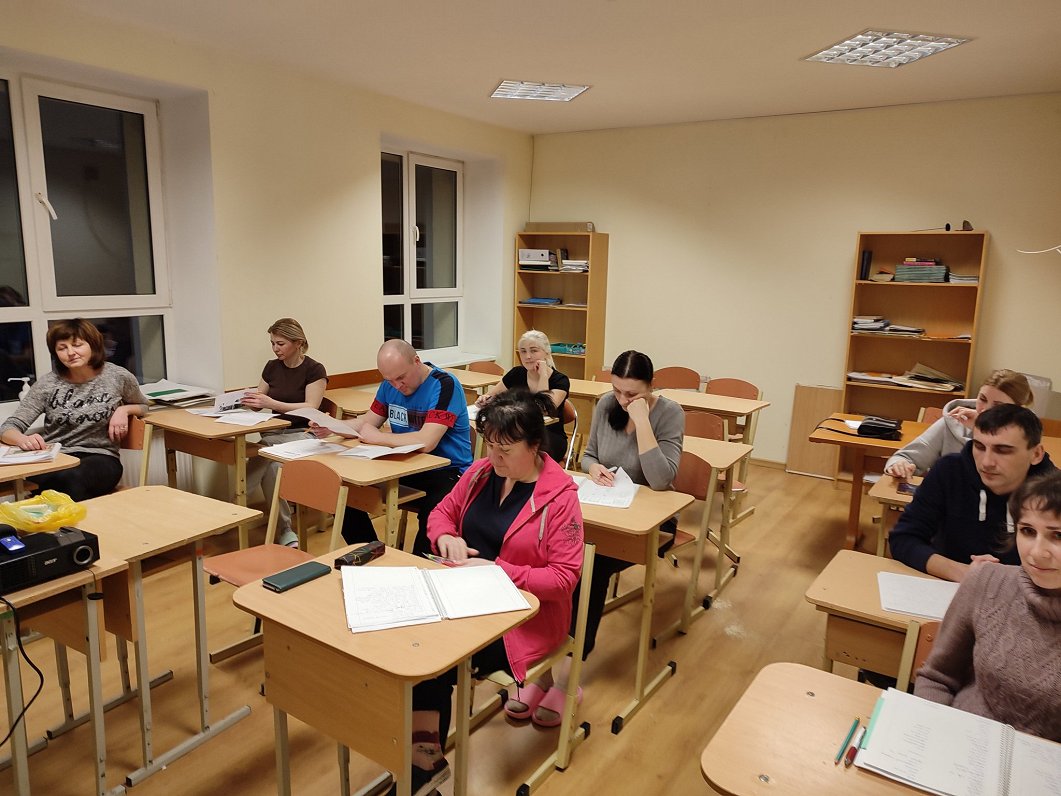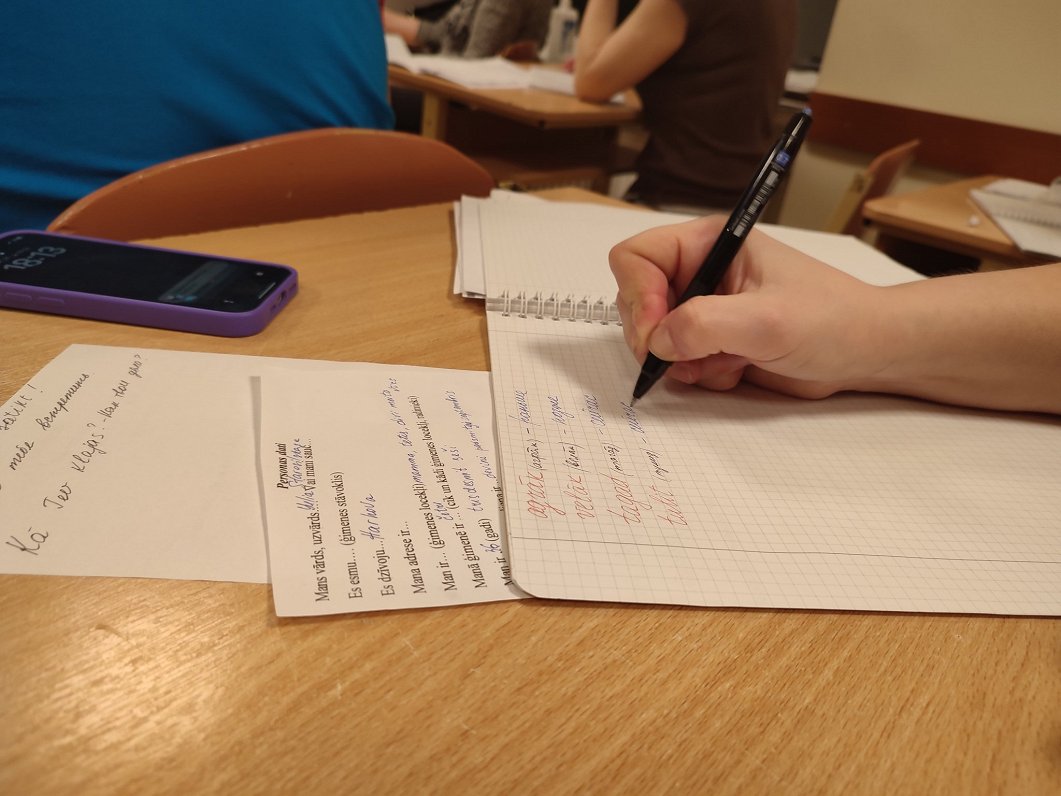18 of the 90 Ukrainians living in the school building have applied for Latvian language courses.
The Latvian teacher, Iveta Rundāne, said: “We started on February 7. Basically, this is the third week. We meet three times a week, 10 hours a week, with a total course length of 120 hours.”
These Latvian language courses for Ukrainians are organized by the Latvian Red Cross. Training is planned in the regions of Kurzeme, Vidzeme, and Latgale. “The idea is that they are learning at A1 level, which is the basis for making it easier to communicate, so that it is easier to enter the labor market, but now we will see the result as spring approaches.”

In Adamova, the Latvian language is mostly learned by women, but there are also a few men. Sergei has lived here for nearly a year. Latvian Radio asked him if he understands Latvian already – he says, a little. Sergei reads his homework in Latvian: “I live in Kharkiv, I'm forty-four. I have two children – sons.”
Sergei is currently working in a woodworking company.
“My motivation to learn is respect for your people. To understand the culture, language.”
Julia is from Kharkiv and has lived in Adamova since June: “We were brought here, and so I stayed with my family, with my husband and two children.” It is difficult for her to learn the Latvian language. “You all speak Russian and Latvian well. This is not the way we – Russian and Ukrainian – have languages that are 70 percent the same. But here — very different.” She and Latvians communicate in Russian. “If I thought four months ago I was going back to Ukraine, why would I need Latvian, then now I don't know when I'm going back to Ukraine. I might have to stay here, but I have no language.”
All Ukrainians spoken to by Latvian Radio said that while living in Rēzekne municipality, there is no difficulty without Latvian. The language is only needed for Tatiana, who works as an assistant teacher at Verēmu elementary school:
"It is desirable to communicate with children in Latvian. Being among children, I'm more likely to learn Latvian. I know something, but it's hard. You need to learn words, remember."
In the school's kitchen, Latvijas Radio meets Antonina. She does not attend training. She has lived in Adamova since October: "This is all Russian-speaking. It's enough. We communicate. We are unemployed. Everybody knows Russian, and talks to us in Russian. Maybe we'll go home soon. We are from Luhansk County. Our territories are occupied. We hope it may be all right by spring."
The most widely available Latvian language training for Ukrainian civilians is organized by the Society Integration Foundation. From June to December, 3,500 people took advantage of the possibility offered by them in Latvia. The deputy director of the Foundation's secretariat, Reinis Lasmanis, describes such activity as sufficient.
“Ukrainian civilians are happy to learn the local language, are happy to understand local traditions, and are happy to be part of the local community. There are, of course, the following exceptional cases where a person plans to be here for only one, two or three months - just in the short term - and then go back to Ukraine or go on to another European country."
The second phase of Latvian language training organized by the Society Integration Foundation could start in March. This year, Ukrainian civilians will be able to learn not only basic knowledge but also to choose higher levels of language learning.




























